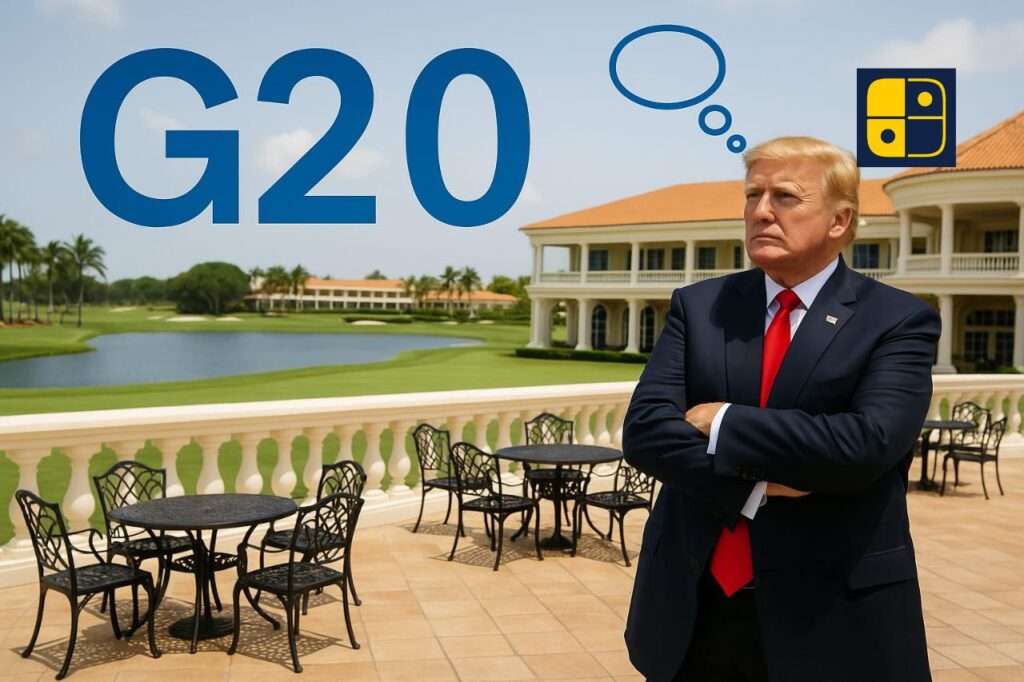U.S. President Donald Trump’s decision to host the 2026 G20 summit at his Trump National Doral resort in Miami has reignited questions about the intersection of governance and private business. The 800-acre property, with four golf courses and a 643-room hotel, is promoted by Trump as the “best location in the world.” He insists the summit will run “at cost,” but critics recall his failed 2020 attempt to host the G7 at the same venue, abandoned after bipartisan backlash over ethics concerns. With the G20 representing more than 80% of global GDP and 75% of global trade, the symbolism of placing world leaders at a president’s private resort reflects Trump’s preference for transactional diplomacy.
Uncertainty clouds the optics: it is unclear whether Russia or China will attend Miami, while U.S. Vice-President J.D. Vance will lead Washington’s delegation to this year’s G20 in South Africa. For allies and rivals alike, the venue choice signals Trump’s intent to merge personal brand with global statecraft.
For New Delhi, which steered a successful 2023 G20 in New Delhi that advanced Global South priorities, Miami offers both risk and leverage. India must defend its Russian oil imports, push tariff concessions, and expand digital infrastructure cooperation. Its challenge will be to keep the G20 agenda from being overshadowed by Trump’s theatrics.

